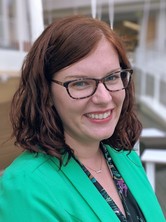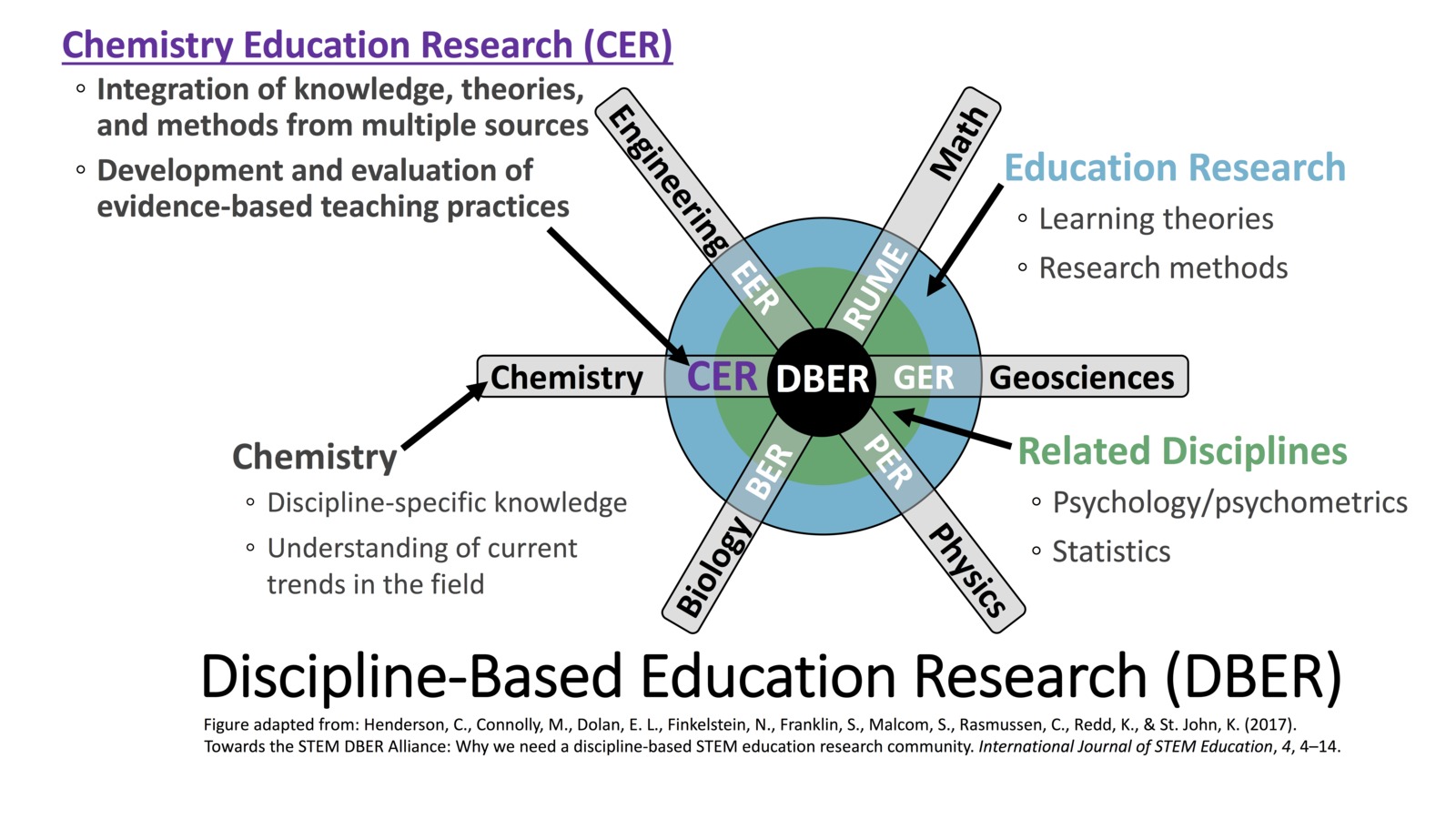Regis Komperda
Associate Professor, Chemical Education
office: GMCS 203; 6475 Alvarado Rd Suite 206
email: rkomperda@sdsu.edu

Komperda Group Page
Curriculum Vitae
Professional Experience
- Associate Professor, San Diego State University, 2024—
- Assistant Professor, San Diego State University, 2019—2024
- Postdoctoral Fellow, Barbera Group, Portland State University, 2016—2018
- Lecturer in Chemistry, Wright State University, 2010—2012
- High School Chemistry & Physics Teacher, Minooka Community High School, 2008—2010
Education
- PhD in Chemical Education, Bunce Group, Catholic University of America, 2016
- MS in the Teaching of Chemistry, University of Illinois at Urbana-Champaign, 2008
- BS in Chemistry, Minor in Secondary Education, University of Illinois at Urbana-Champaign, 2007
Research Interests
Chemistry education research (CER) investigates how students learn chemistry and works to develop evidence-based teaching practices. CER is grounded in knowledge of chemistry content and skills and integrates theoretical frameworks and research methodologies from fields including psychology and education. The field of CER is a specific area within the broader discipline-based education research (DBER) community and working in CER offers many opportunities for collaboration with other DBER community members. At SDSU this work is supported by the Center for Research in Mathematics and Science Education (CRMSE), where I am a member.

My research is primarily quantitative and has two main areas of emphasis. The first focus is investigating issues of measurement and psychometric instrumentation in chemistry education. Having tools available to make high quality measurements is crucial to generating valid and reliable data. These data support chemistry and other discipline-based education researchers when measuring variables in various classroom and research contexts. Current projects include psychometric evaluation of instruments measuring student motivation, student study approaches, instructor teaching approaches, and learning environment characteristics. These instruments support my second focus on building larger statistical models using latent variable techniques, such as structural equation modeling, to better understand how the adoption of evidence-based teaching practices influences student outcomes in chemistry courses. A common theme throughout all areas of my research is use of the open-source R statistical software to encourage reproducible research through code sharing.
Selected Publications
- "Impact of Clicker and Confidence Questions on the Metacognition and Performance of Students of Different Achievement Groups in General Chemistry,"
Bunce D.M., Schroeder M.J., Luning Prak D.J., Teichert M.A., Dillner D.K., McDonnell L.R., Midgette D.P., Komperda R.,
Journal of Chemical Education 100, 1751-1762 (2023). (doi: 10.1021/acs.jchemed.2c00928.) - "Practices in instrument use and development in chemistry education research and practice 2010-2021,"
Lazenby K., Tenney K., Marcroft T.A., Komperda R.,
Chemistry Education Research and Practice 24, 882-895 (2023). (doi: 10.1039/d2rp00275b.) - "The Chemistry Instrument Review and Assessment Library (CHIRAL): A New Resource for the Chemistry Education Community,"
Barbera J., Harshman J., Komperda R.,
Journal of Chemical Education 100, 1455-1459 (2023). (doi: 10.1021/acs.jchemed.2c00762.) - "Characterizing Graduate Student Identity Development in the Context of an Integrated Research and Teaching Graduate Student Training Course,"
Corrales A., Komperda R.,
Journal of Chemical Education 99, 1747-1757 (2022). (doi: 10.1021/acs.jchemed.1c00927.) - "Investigation of evidence for the internal structure of a modified science motivation questionnaire II (mSMQ II): A failed attempt to improve instrument functioning across course, subject, and wording variants,"
Komperda, R., Hosbein, K. N., Phillips, M. M., Barbera, J.,
Chem. Ed. Res. and Practice 21, 893—907 (2020). (10.1039/d0rp00029a.) - "Addressing diversity and inclusion through group comparisons: A primer on measurement invariance testing,"
Rocabado, G. A., Komperda, R., Lewis, J. E., Barbera, J.,
Chem. Ed. Res. and Practice 21, 969—988 (2020). (10.1039/d0rp00025f.) - "Problem-Solving Behaviors of Different Achievement Groups on Multiple-Choice Questions in General Chemistry,"
Teichert, M. A., Schroeder, M. J., Lin, S., Dillner, D. K., Komperda, R., Bunce, D. M.,
J. Chem. Ed. 97, 3-15 (2020). (10.1021/acs.jchemed.9b00774.) - "Moving beyond alpha: A primer on alternative sources of single-administration reliability evidence for quantitative chemistry education research.,"
Komperda, R., Pentecost, T. C., and Barbera, J.,
J. Chem. Ed. 95, 1477—1491 (2018). (10.1021/acs.jchemed.8b00220.) - "Komperda, R., Hosbein, K. N., and Barbera, J.,"
Evaluation of the influence of wording changes and course type on motivation instrument functioning in chemistry,
Chem. Ed. Res. and Practice 19, 184—198 (2018). (10.1039/C7RP00181A.) - "Likert-type survey data analysis with R and RStudio.,"
Komperda, R.,
Computer-Aided Data Analysis in Chemical Education Research (CADACER): Advances and Avenues , 91—116 (T. Gupta, Ed.) (2017). (10.1021/bk-2017-1260.ch007.) - "Differential use of study approaches by students of different achievement levels,"
Bunce, D. M., Komperda, R., Lin, S., Schroeder, M., Dillner, D., Teichert, M. A., and Hartman, J. R.,
J. Chem. Ed. 94, 1415—1424 (2017). (10.1021/acs.jchemed.7b00202.) - "Choice of study resources in general chemistry by students who have little time to study,"
Bunce, D. M., Komperda, R., Dillner, D., Lin, S., Schroeder, M., and Hartman, J. R.,
J. Chem. Ed. 94, 11—18 (2017). (10.1021/acs.jchemed.6b00285.)
